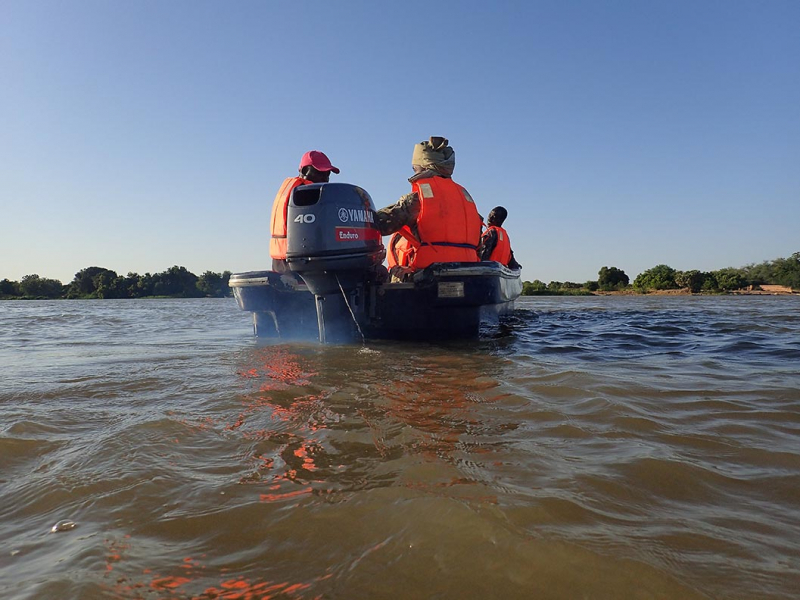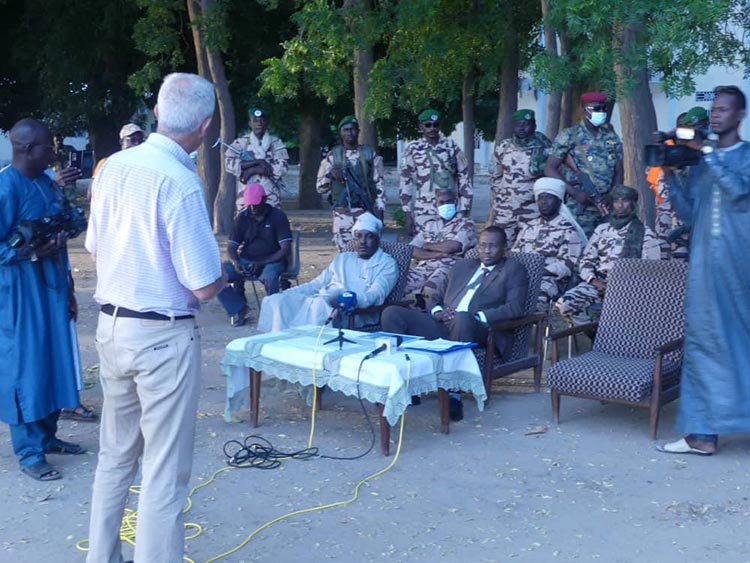Chadian agents trained by the OFB
From 11 to 14 October, the French Biodiversity Agency was mobilised in Chad to train the Forest and Wildlife Guard in conducting nautical missions.
In 2019, a partnership agreement was signed between the OFB and the Forest and Wildlife Guard of Chad, including training sessions.
This group, which consists of 2,800 agents, is responsible for combating trafficking, poaching and the introduction of poisons, substances that are prohibited on Chadian territory but which are widely used by herders to protect their livestock from predators.
Chad has important lakes and rivers, rich in biodiversity, with important monitoring needs. The training needs identified therefore focused primarily on the conduct of nautical missions.
After a postponement due to the health context, and thanks to the strong involvement of the French Embassy in Chad, this training took place from 11 to 14 October on the Chari River, which borders Cameroon.
Ten Forestry and Wildlife Guard agents were trained by a specialist from the OFB's Occitanie regional office and two experienced African nautical trainers, trained in 2005 by the National Hunting and Wildlife Office (now the OFB).
The programme included the usual 5 modules of this type of training, which has already been successfully tested for 20 years in several African countries :
- Preparation of missions
- Security
- Piloting
- Seamanship
- Mechanics
At the end of the training, the agents successfully passed an exam to verify that the practical notions taught were acquired.
For the presentation of the certificates to the trainees, the Chadian Minister of the Environment, MAHAMAT Ahmat Lazina, accompanied by Colonel ITNO, Commander of the Forestry and Wildlife Guard, made a point of coming to the event.
This ceremony, broadcast on Chadian television, provided an opportunity to discuss the prospects for partnership to be developed between the OFB and the Ministry of the Environment, and in particular the need for training in the fields of law, CITES, knowledge of biodiversity and the use of certain technical means.





